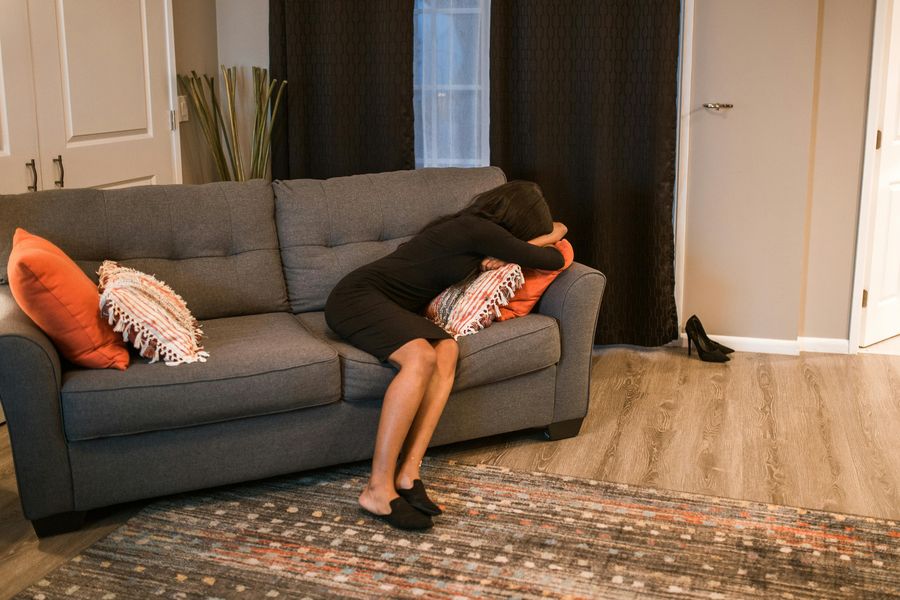The Benefits of Marriage Counseling: Addressing Choppy Waters Head-On
Are you and your partner going through a rough patch? Do you feel like you’re constantly at an impasse, unable to solve even the simplest of problems?
Do you find yourselves arguing over the same issues, again and again, with no real resolution in sight? If so, it’s time to consider the benefits of marriage counseling.
Even if you’re not in dire straits, tackling any issues early on is key to maintaining a healthy and happy relationship. Here, we’ll take a closer look at the benefits of marriage counseling, what happens in counseling, and how it can help you deepen your connection with your partner.
Importance of Addressing Marital Concerns
Choppy waters can throw any relationship off course. Even the most compatible of partners can find themselves at odds over topics that seem trivial to one and essential to the other.
And it’s not always easy to navigate these seas alone. Enter expert marriage counselors.
They’re trained to help you focus on what really matters, and to help you and your partner find common ground again. Why wait until things are at a breaking point?
Seeking the help of a trained professional can help you avoid impasses later in the relationship.
Platform for Confronting Issues and Finding Common Ground
Sometimes, all it takes is a third party to break the pinball-like cycle of disagreement. Mediation can be the key to successfully tackling difficult topics.
Counseling is a safe space where issues can be raised and worked through. And working through them is the key to finding common ground.
Problem-solving must be a core component in these sessions in order to keep them productive.
Improvement of Communication and Habits
We all have habits that affect our relationships. Some are healthy, others not so much.
But habits can be broken or cultivated. One of the primary benefits of marriage counseling is that it helps couples identify communication skills, healthy habits, settling misunderstandings, and resolving conflicts.
It’s important to understand each other’s styles of communication, how to listen and invite feedback, and how to avoid misunderstandings. Counseling sessions can also help individuals identify unhealthy habits that can lead to conflict.
Once identified, these habits can be reshaped in a positive way.
Deepening of Intimate Connection and Hope
When our relationship feels like it’s going nowhere, it’s easy to lose hope. It’s easy for one or both parties to feel lost or unsure about the future.
But marriage counseling is a tool for deepening connection. It’s a safe place to resolve conflict so that you can feel closer to one another.
There is hope for relationships in choppy waters. And it is possible to find long-term solutions for the issues that are causing tension.
What Happens in Marriage Counseling
Now that we’ve discussed the benefits of marriage counseling, let’s take a closer look at what happens in a counseling session.
Learning How to Communicate Constructively
Counseling sessions are focused on communication in the relationship. By learning how to communicate effectively, couples can tackle difficult topics without escalating conflicts.
De-escalating during a disagreement can prevent anything from getting out of hand and may even make it easier for insight to arise.
Identification and Avoidance of Triggers
Counseling can also help couples identify the things that trigger negative emotions. This could be anything from a particular phrase to the way one speaks.
Once identified, it becomes possible to determine how to avoid these triggers. By avoiding conflict triggers, you and your partner can work together to avoid conflicts before they even start.
Development of Empathy for Each Other
Counseling can be the key to developing empathy for each other. It’s essential to understand differing perspectives, even when you don’t agree.
By doing so, it becomes easier to avoid misunderstandings and to work together towards a common goal.
Addressing Repetitive Patterns of Negative Interaction
Couples who argue over the same issues often do so in the same way repeatedly. That’s where counseling comes in.
Counseling can help you interrupt those negative patterns, promote more positive behaviors that can ease the tension in arguments, and find a solution that suits both parties.
Celebrating Positive Growth in the Relationship
Counseling also provides space for reflection and celebration. Celebrating progress can be useful for establishing positive rituals that strengthen the relationship.
Final Thoughts
Marriage counseling can be the key to lasting success for relationships facing choppy waters. As difficult as it may be to confront your own issues, the process of working through them together may be the catalyst for deeper intimacy and connection with your partner.
By addressing the concerns that can derail worthy relationships, learning to communicate effectively with one another, and developing empathy, couples can work towards long-term solutions that promote a healthy, loving relationship.
Marriage Counseling Process: From Baggage to Shared Vision
Marriage counseling process involves a set of techniques and skills meant to facilitate emotional and mental growth, help couples overcome problems, and save their relationship from falling apart.
It is a process that involves unpacking baggage, identifying negative patterns, and developing tools to communicate and navigate conflict constructively. Here’s what you can expect from the marriage counseling process, from addressing the history of your relationship to creating a shared vision for the future:
Addressing the History and Baggage of the Relationship
One of the important aspects of marriage counseling is delving into the history and baggage of your relationship. This means going back to the beginning and understanding how you came together as a couple.
Understanding your partner’s background, personal struggles, and family dynamics is crucial in creating empathy, self-awareness and self-reflection, self-compassion, and acknowledging one anothers shortcomings. It enables you to address emotional wounds that may be hindering your current relationship.
This process may involve some uncomfortable conversations and personal disclosures, but the goal is to create a safe space for couples to express themselves freely and overcome their emotional barriers.
Conflict Resolution and Dealing with Deal Breakers
Naturally, conflicts are bound to happen within every relationship, but how you handle them is what makes or breaks the relationship. To this end, one of the main benefits of marriage counseling is teaching couples how to navigate and resolve conflicts in a healthy and constructive way.
The process of conflict resolution is also meant to help couples identify their own and their partner’s triggers and hot buttons that tend to escalate conflict and tackle them. It is important to pay attention to differences in what each partner requires in overcoming conflict.
Dealing with deal breakers involves honest communication regarding issues that each partner would not be willing to compromise on. It enables couples to identify issues, develop a shared understanding of them, and negotiate terms that are acceptable to both parties.
Addressing Old Hurts and Healing Them
Marriage counseling provides a fertile ground for addressing old emotional wounds and processing feelings associated with those wounds. To achieve this, the therapist may take you on a journey that involves revisiting past hurts and the accompanying emotions and developing tools to deal with them.
By working through old hurts and feelings, couples learn how to let go of past resentments and focus on building a strong relationship for the future.
Learning to Listen and Communicate Effectively
Marriage counseling involves learning empathetic communication, active listening, and creating safety and space in discussions with your partner. Empathetic communication involves focusing on understanding your partner’s perspective without judgment, criticism or defensiveness.
Active listening, on the other hand, requires full attention to your partner as they express themselves, summarizing their words for mutual understanding. It fosters connection and safety in the relationship.
Developing a Shared Vision of the Relationship
The last phase of the marriage counseling process is creating a shared vision that fosters healthy communication, mutual respect, and builds trust between couples. It involves setting common goals, creating a plan for achieving them, and developing mutual accountability.
Working towards a shared vision involves compromise and mutual understanding of the aspirations of each partner. This helps in creating a strong sense of unity and purpose for the future.
Goals of Marriage Counseling
The goals of marriage counseling are for couples to come together in a space that is safe, nurturing, and where you both can express yourselves constructively toward the relationship. Some of the goals of marriage counseling are:
Establishing Safety, Connection, and Belief in Each Other
Safety, connection, and belief that the relationship is worth fighting for are essential in building a healthy and successful relationship.
Through communication, couples can address the core issues that erode the connection and safety in the relationship and be able to move forward together while creating a positive outlook.
Taking Personal Responsibility for Feelings and Actions
It is important for couples to hold themselves accountable for their actions and take responsibility for their feelings without blaming the other person. The willingness to acknowledge your role in conflict and relationship problems is key to creating a more positive and constructive relationship.
Developing Forgiveness and Empathy
Forgiveness and empathy are important in creating a successful marriage. Learning how to forgive, process, and empathize with your partner creates an atmosphere of mutual understanding, forgiveness, and support in the relationship.
Recognizing and Stopping Destructive Patterns
Destructive patterns can severely damage a relationship. Identifying negative patterns, learning how to change behaviors, and developing healthy coping skills help couples recognize and break these patterns to create a healthier and more supportive relationship.
Learning to Engage in Bid and Cue Engagement
Bid and cue engagement refers to the ability to engage in positive conversation with your partner in a manner that promotes intimacy and connection. It involves recognizing and responding positively to bids that your partner makes.
Packaging Love in a Way That Is More Likely to Be Received
Effective communication promotes mutual understanding, empathy, and connection in relationships. This requires you to understand your partner’s communication style and packaging love in a way that is more likely to be received positively.
This ensures that you can communicate and connect in a more effective and constructive way.
Final Thoughts
Marriage counseling is a process that requires effort, openness, and the willingness to make changes for the betterment of the relationship. It provides couples with the tools, skills, and techniques to heal old wounds, improve communication and listening skills, move beyond conflicts, and create a shared vision for the future.
With the right mindset and effort, marriage counseling can help strengthen and transform your relationship for the better. In conclusion, marriage counseling is more than just a process of problem-solving; it’s a tool for deepening the connection and love in your relationship.
By addressing the history and baggage of the relationship, developing empathy and breaking old habits, and learning to communicate effectively, couples can create a shared vision for the future. The goal of marriage counseling is to establish safety, connection, and belief in each other, take personal responsibility for feelings and actions, develop forgiveness and empathy, recognize and stop destructive patterns, learn to engage in bid and cue engagement, and package love in a way that is more likely to be received positively.
Overall, marriage counseling can provide couples with the tools and skills required to create and maintain a healthy and loving relationship for a lifetime.



